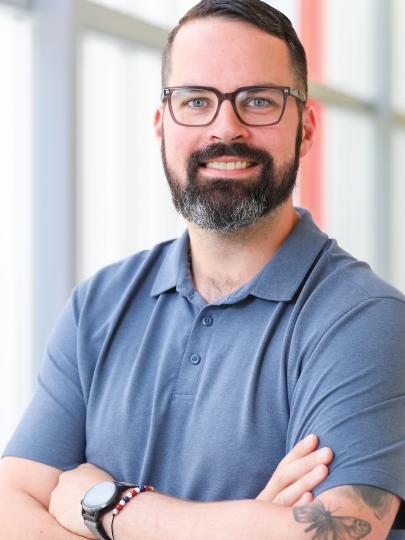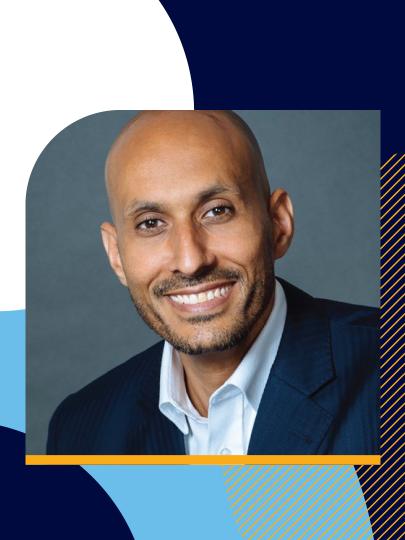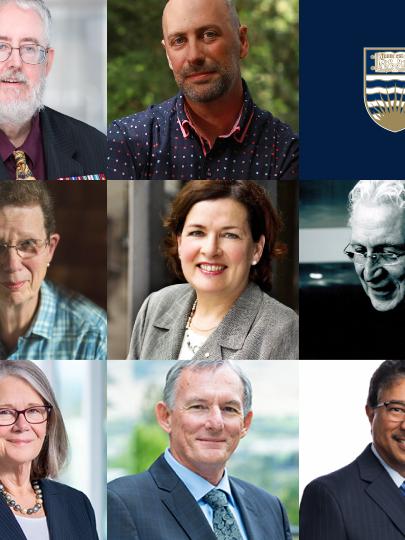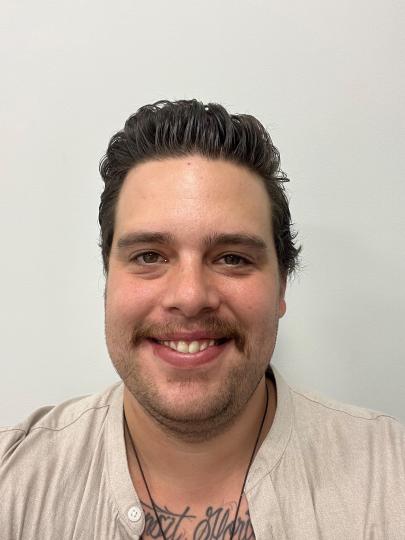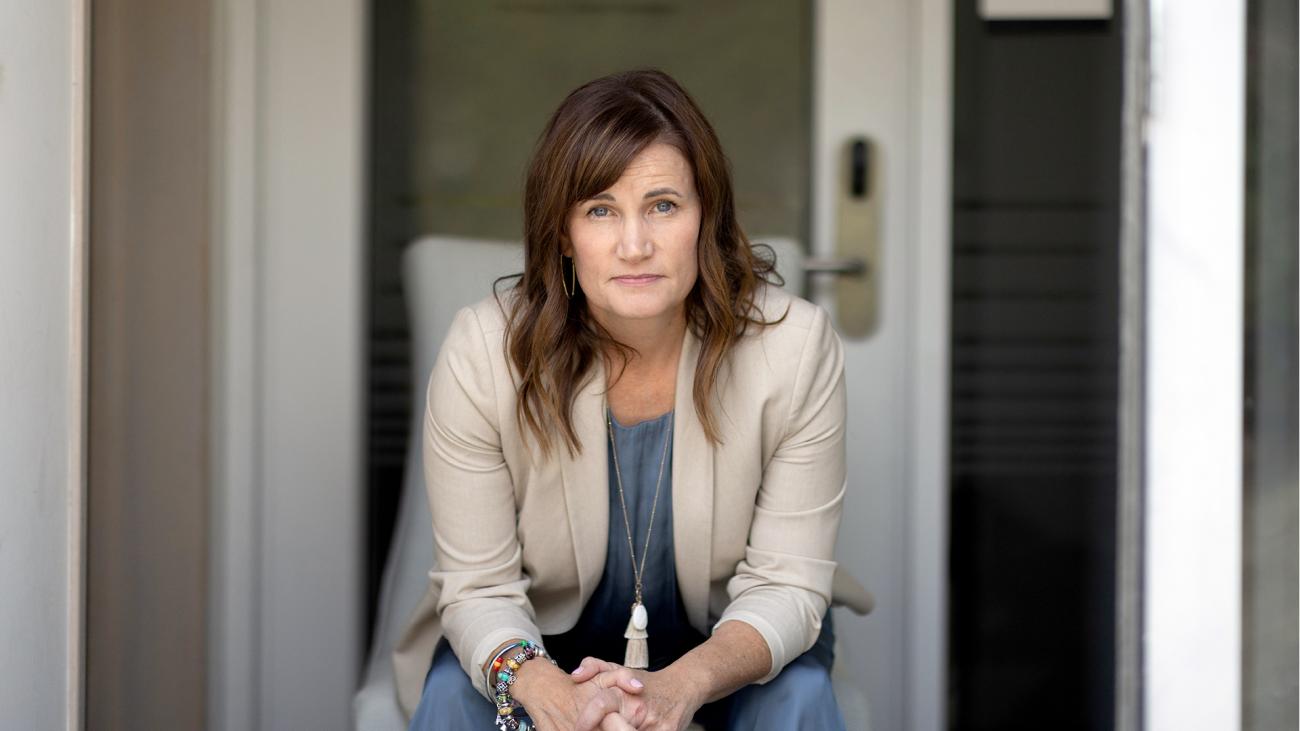The doctor is in
Dr. Lesley Lutes’ vision is for a healthier future where everyone gets the psychological care they need, when they need it.
Dr. Lesley Lutes wants British Columbia to become a place where a physician’s office treats the whole person, not just their physical ailments.
Over the last several years, Dr. Lutes — a Registered Psychologist and Professor of Psychology at UBC Okanagan — has led the charge in advocating for increased public access to psychological services.
“Research tells us that as many as seven out of 10 primary care visits now have either a mental health or behavioural component. People face difficulties like stress, anxiety, depression, chronic pain, obesity, diabetes, insomnia, and problematic substance use — and all of these concerns are in a psychologist’s wheelhouse,” explains Dr. Lutes.
“By increasing public access to psychologists on primary care teams, we can immediately improve access to care that treats both mental and physical health conditions simultaneously.”
She adds: “This isn’t something new, innovative, or unproven. This has been done for decades around the world. What I’m proposing that’s new to BC is a primary care-specific training and curriculum designed to effectively integrate psychologists into team-based primary care in a way that promotes continuity of care for patients.”
Indeed, over the last 20 years, research has overwhelmingly supported the measurable improvements that come from developing a more holistic healthcare system and including highly trained mental health specialists into primary care.
For example, New Zealand has been integrating psychologists into primary care since 2000, and the results are showing. A 2022 study demonstrated that placing mental health specialists in primary care resulted in a decline in psychiatric hospital admissions and shortened length of stay within psychiatric in-patient settings.
Research has also been done right here in BC looking at the more immediate effect of having a psychologist as a part of the primary care team. Across one year, results showed that patients treated by the psychologist experienced significant declines in anxiety, depression, and suicidality. In the following six months, family doctor visits were less frequent, leaving more appointments open for other patients, and physician satisfaction was incredibly high.
These outcomes were observed despite clients receiving an average of only 2.5 appointments with the psychologist that lasted 30 minutes or less.
But when Dr. Lutes returned to British Columbia in 2015 to direct the new clinical psychology program at UBC Okanagan, she says she was shocked to see an almost complete absence of mental health services within the public healthcare system, particularly the notable absence of psychologists.
“Psychologists are highly trained mental health specialists with thousands of hours of mental health literacy and clinical training, and with the competencies to provide assessment, diagnosis, and treatment to a wide range of mental and behavioural health conditions. They’re also regulated under the Health Professions Act.
“For decades, our healthcare system has focused almost exclusively on physical health, with mental and behavioural health rarely considered or addressed. This has led to a lack of role clarity between the different mental health professions. Lumping them all into one category and seeing them as interchangeable disregards differences in their training, competency, scope of practice, and regulatory oversight.
“The result has been a slow drain of psychologists across the province and country over the last few decades from the public health sector into private settings. These days, most psychologists are only accessible if someone has excellent extended healthcare benefits or has the means to pay out of pocket.”
For Dr. Lutes, it’s time to change that.
Dr. Lutes’ passion for transforming the conversation surrounding mental health led to the creation of a public walk-in mental health clinic at UBC Okanagan in 2018, a first-of-its-kind on a BC university campus.
Initially launched as a five-week unfunded pilot, the clinic is now permanently funded two days per week thanks to private donors and UBCO administration.
Despite seeing more than 1,100 patients in person and virtually across the province since its opening and having a 93% satisfaction rate, it’s only one clinic. That’s why Dr. Lutes secured funding from UBC Okanagan’s Campus as a Living Lab initiative to work with the Student Health Clinic to further expand access to psychological services into the health clinic on campus.
“Working in collaboration with the Student Health Clinic, we want to enhance the mental health services that are already being provided there, giving students access to new mental and behavioural health services when they need it.
“Whether it’s for anxiety, pain, insomnia, or reproductive health, the lack of timely access to behavioural health services can have devastating impacts. We need to start treating all health conditions, including mental health, with the same seriousness and precision of care.”
But she’s not stopping there.
Dr. Lutes and her team at the Centre for Obesity and Well-Being Research Excellence (CORE), funded by the Canadian Foundation for Innovation and the BC Knowledge Development Fund, are currently working with the BC Psychological Association in coordination with the provincial government on a proposal that would test the impact of integrating psychologists into primary care practices across the province.
If funded, the $4 million proof of concept would span urban, rural, remote, and Indigenous communities, the latter of which consistently have the lowest access to evidence-based mental and behavioural health services. One of the many goals of the initiative is to determine whether this access can increase patient satisfaction, reduce physician burnout, and decrease healthcare utilization by integrating a psychologist within a primary care team.
“Patients undergoing cancer treatment rightfully have access to a multidisciplinary team with trained healthcare professionals at all levels of expertise and scope of practice. Our current healthcare system in BC doesn’t afford patients requiring psychological services the same equitable access to a high-quality, multidisciplinary care team.”
But she sees real signs of hope and change already in BC.
“This year, Doctors of BC formally identified psychologists as critical members of the primary care team. I’ve also seen meaningful engagement and efforts by the provincial government in recent months. They’re keen to work with leaders and stakeholders across multiple sectors to determine how to increase the workforce of highly trained professionals. These professionals are needed in order to best care for the population’s diverse healthcare needs.”
She adds: “Psychologists aren’t the only solution to the current healthcare crisis, but they’re a needed and important one.”


